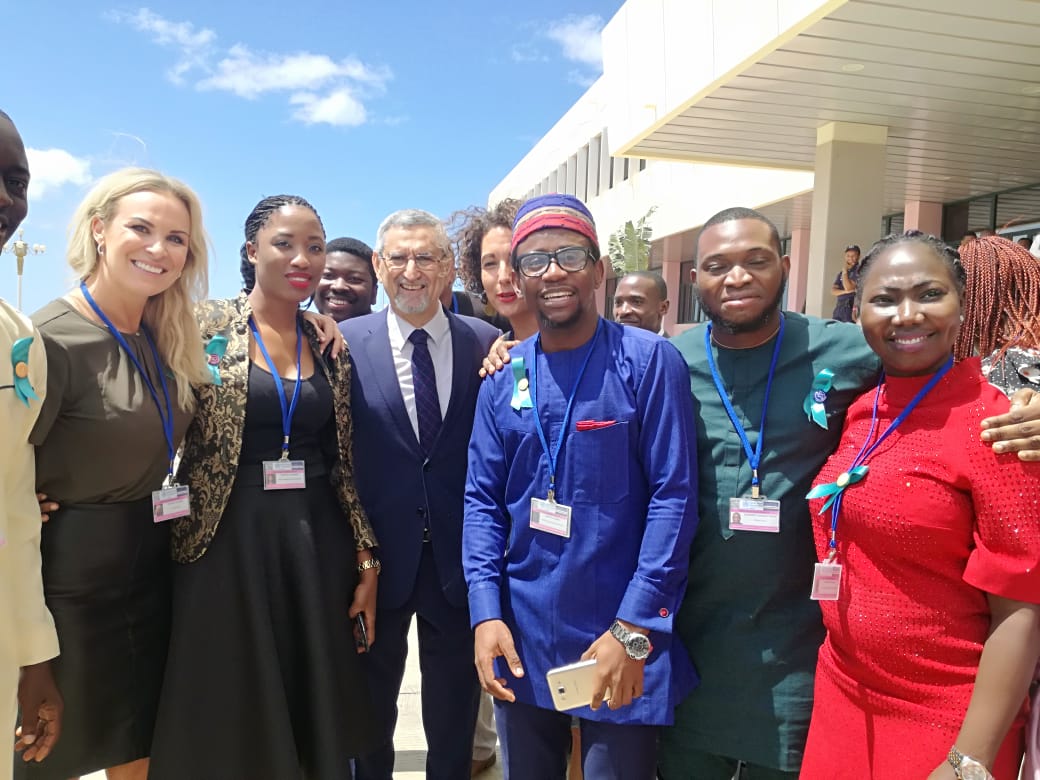
Looking Back on the WHO Africa Innovation Challenge
The WHO Africa Innovation Challenge campaign was officially launched on 08 November 2018 by Dr Matshidiso Moeti, Regional Director of WHO Regional Office for Africa. The call for application was shared with over 280 referral partners and 100 healthcare innovators from across Africa. The Challenge targeted science-driven innovations as well as community-based initiatives, including youth and women that are working on novel solutions to improve health outcomes in Africa and apply new and fresh thinking to address unmet health needs on the continent. The Top 30 selected finalists were awarded a sponsored opportunity to attend and be profiled at the 2nd Africa Health Forum held in Cape Verde from 26 to 28 March 2019.
The Challenge received a total of 2 417 applications in just four weeks from 76 countries, including 49 African countries. Of the total number of applications, 65% were received from males and over a third of applications were submitted by women (35%). The highest number of applications from a single country was from Nigeria (26.8%), followed by Kenya (8.8%), Uganda (7.5%) and Tanzania (5.9%). Other countries with over 100 application submissions included Ghana (5.5%), Cameroon (5%), South Africa (5%) and Zimbabwe (4.6%). In terms of age, the youngest applicants, at 17 years of age, were from Ethiopia, Kenya and South Africa.
The Africa Health Forum brought together prominent government representatives, policy makers, healthcare officials and academia. The Challenge application form presented applicants with an opportunity to give their comments on how to create a more effective and enabling environment to drive and support innovative thinking and problem solving in healthcare for Africa. The messages from the applicants were thoughtful and insightful, reflecting a deep knowledge of the context and problems faced in healthcare in Africa.
Notably, the most powerful messages submitted were regarding funding and challenges in policy; comments such as this one received from an innovator in rural Nigeria who suggests the provision “of a legal framework that provides adequate, balanced and effective protection of intellectual property rights, [because] providing various legal mechanisms to incentivize and protect innovators is key.” Other messages call for “strategic leadership as the most needed requirement in healthcare transformation in Africa” and a shift away from the thinking “that health services is the sole responsibility of health workers”. Other messages highlighted often forgotten truths such as a message from a rural-based Kenyan who stressed the need to look at local solutions to our problems and emphasizing again that each African country is unique and we need to harness this uniqueness to come up with solutions that will work for our individual environments.
The WHO Africa Innovation Challenge was indeed a rich and valuable initiative that will continue to evolve and provide continued support to healthcare innovators through a digital platform. The WHO Innovation Platform will link African healthcare innovators to various types of information and support. In the words of one applicant from Zimbabwe, “Innovation can come from the most unexpected sources all we need is being given a chance, be given the necessary funding and be recognized for our potential”.
04 April 2019
